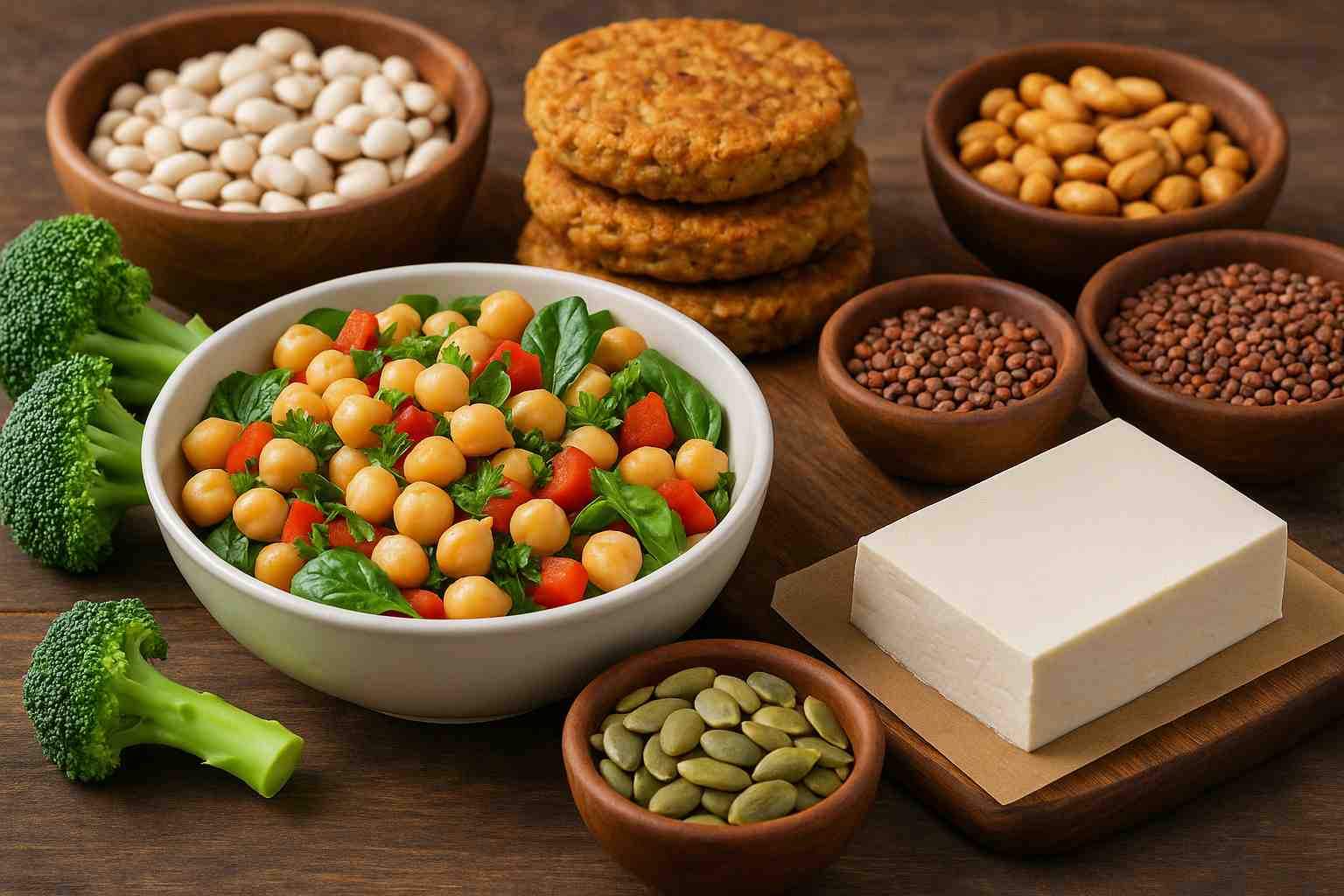Building muscle isn’t solely the domain of meat-eaters. With the right mix of ingredients and thoughtful preparation, vegetarian meals can deliver significant protein to support strength and recovery. From savoury curries to satisfying salads, high-protein vegetarian dishes prove that a plant-focused diet can be both powerful and delicious. Here are fifteen robust recipes to fuel muscle growth without relying on meat.
1. Lentil and Quinoa Stew
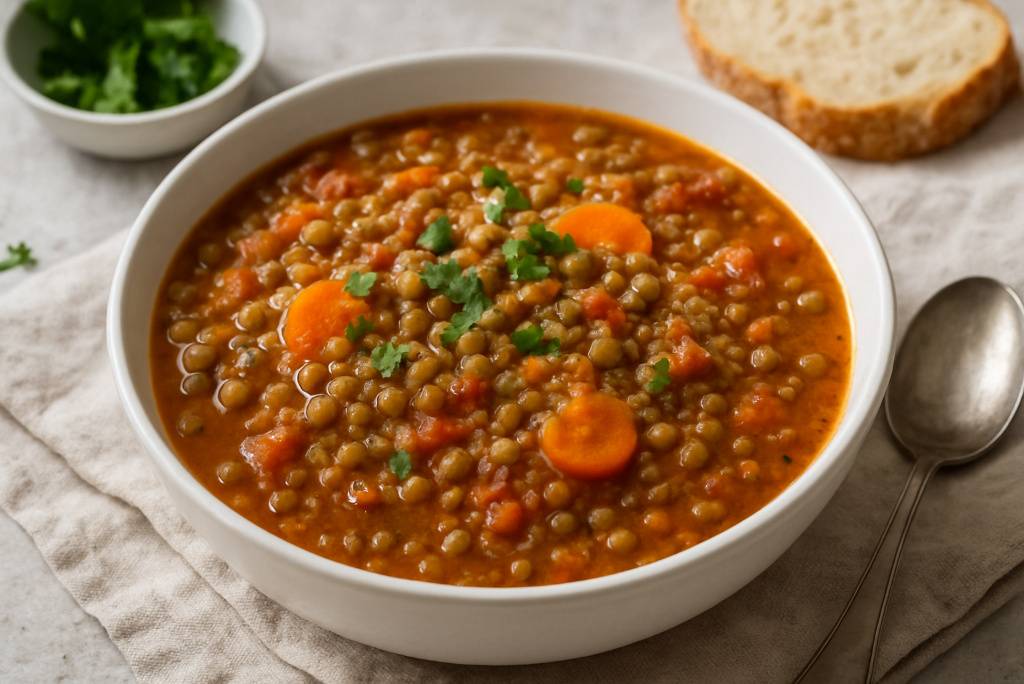
Lentils and quinoa are a powerhouse duo for muscle-building meals. Lentils pack about 18 grams of protein per cooked cup, while quinoa offers all nine essential amino acids, earning it the “complete protein” title. In a savoury stew, simmer green or brown lentils with diced vegetables, garlic, and spices, then stir in cooked quinoa for texture and extra protein.
Compared to heavier bean stews, this dish feels lighter but still satisfies. It’s perfect for batch cooking, making it a go-to post-workout meal. This hearty combination not only delivers protein but also fibre, iron, and magnesium—all crucial for muscle health.
2. Tofu Stir-Fry with Broccoli and Cashews
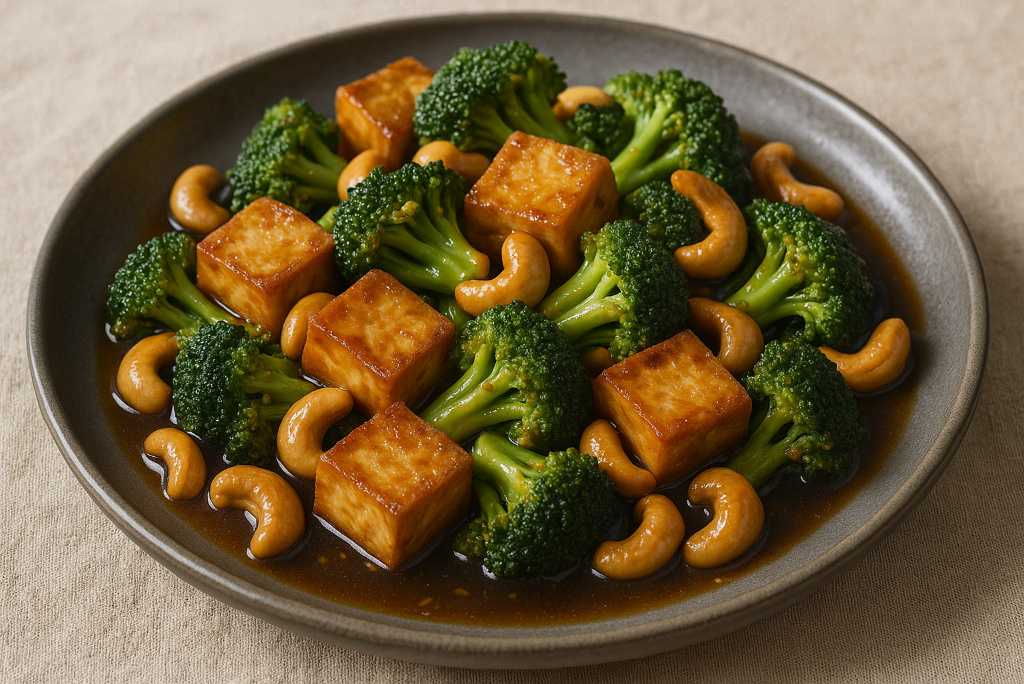
Firm tofu contains roughly 20 grams of protein per cup, making it an excellent choice for a vegetarian muscle gain. Cube the tofu and stir-fry it with crisp broccoli, bell peppers, and cashews. Cashews contribute additional protein and healthy fats, while broccoli offers fibre and vitamin C. For flavour, toss everything in a ginger-garlic soy sauce.
Unlike some tofu recipes that rely heavily on frying, a quick sauté keeps this meal lower in oil and calories. Serve over brown rice for a complete, muscle-supportive dinner. It’s a fast, versatile meal adaptable to any vegetables on hand.
3. Chickpea and Spinach Curry
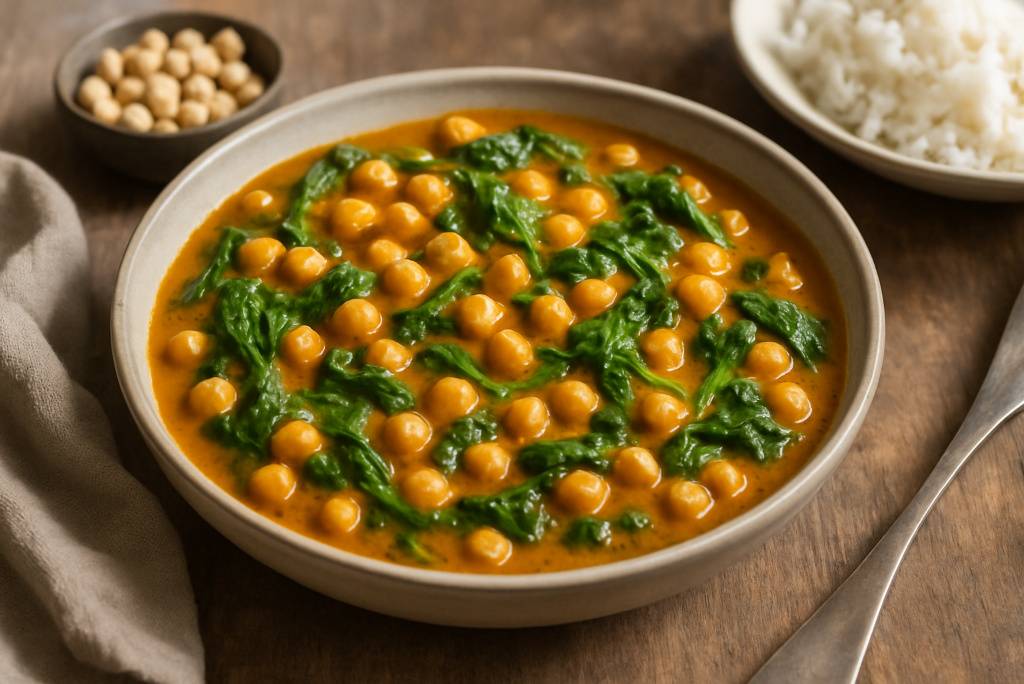
Chickpeas deliver about 15 grams of protein per cooked cup, while spinach adds minerals like iron and magnesium. Simmer chickpeas in a rich tomato-based curry sauce flavoured with ginger, garlic, turmeric, and cumin. Add fresh spinach at the end to maintain its bright colour and nutrients. Compared to meat-based curries, this version is lower in saturated fat yet equally hearty. Enjoy with a scoop of brown rice or quinoa. The robust spices not only taste delicious but may also aid digestion and reduce inflammation, supporting better recovery after workouts.
4. Greek Yogurt Parfait with Nuts and Berries
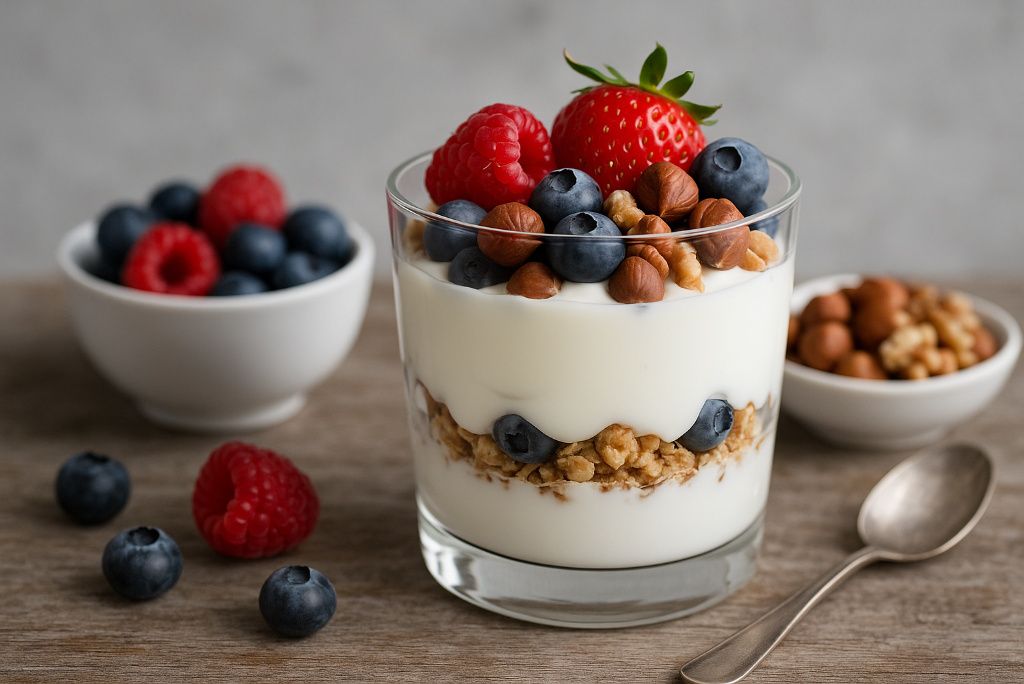
Greek yoghurt packs around 15–20 grams of protein per cup, making it a perfect muscle-building snack. Layer yoghurt with fresh berries, chopped almonds, and a drizzle of honey for a delicious parfait. Almonds contribute additional protein and healthy fats, while berries provide antioxidants to combat exercise-induced oxidative stress. Compared to flavoured store-bought yoghurts, making your own parfait ensures less added sugar and more control over ingredients. This combination is excellent for breakfast or post-gym fuel. It’s a simple, no-cook option that feels indulgent while being highly nutritious.
5. Black Bean and Sweet Potato Tacos
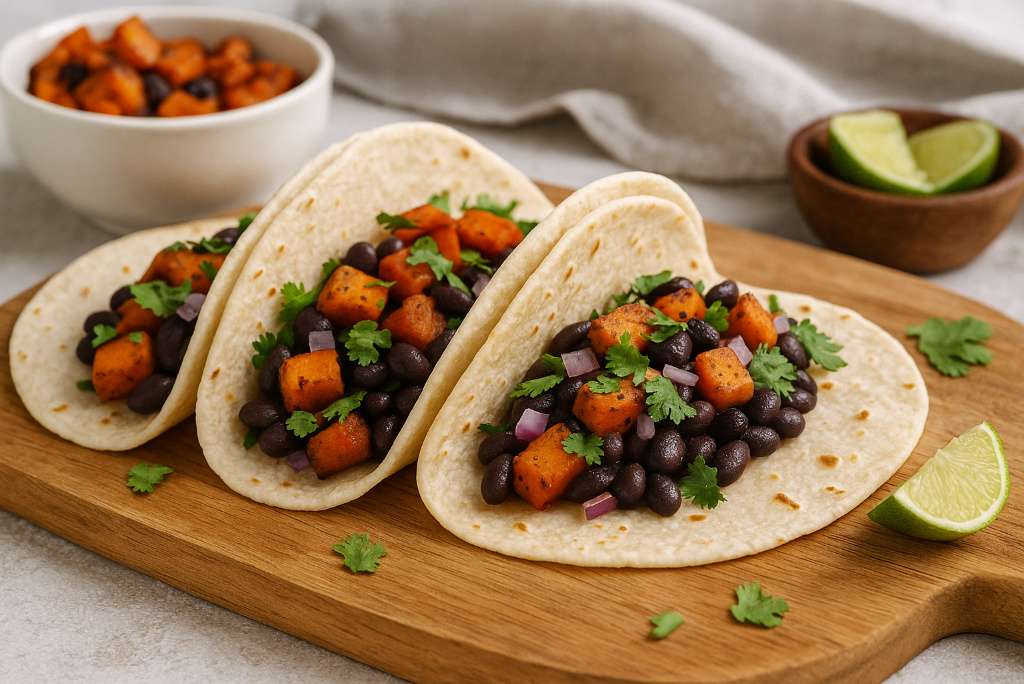
Black beans provide about 15 grams of protein per cup and pair beautifully with roasted sweet potatoes for a satisfying taco filling. Season mashed sweet potatoes with smoked paprika, cumin, and garlic, then spoon onto soft corn tortillas with black beans, avocado slices, and salsa. Unlike meat tacos, these are lower in fat but still hearty and flavourful. Black beans also contain fibre and magnesium, supporting muscle function and digestion. It’s an easy way to enjoy Taco Tuesday while keeping protein levels high and meals meat-free.
6. Cottage Cheese and Berry Bowl
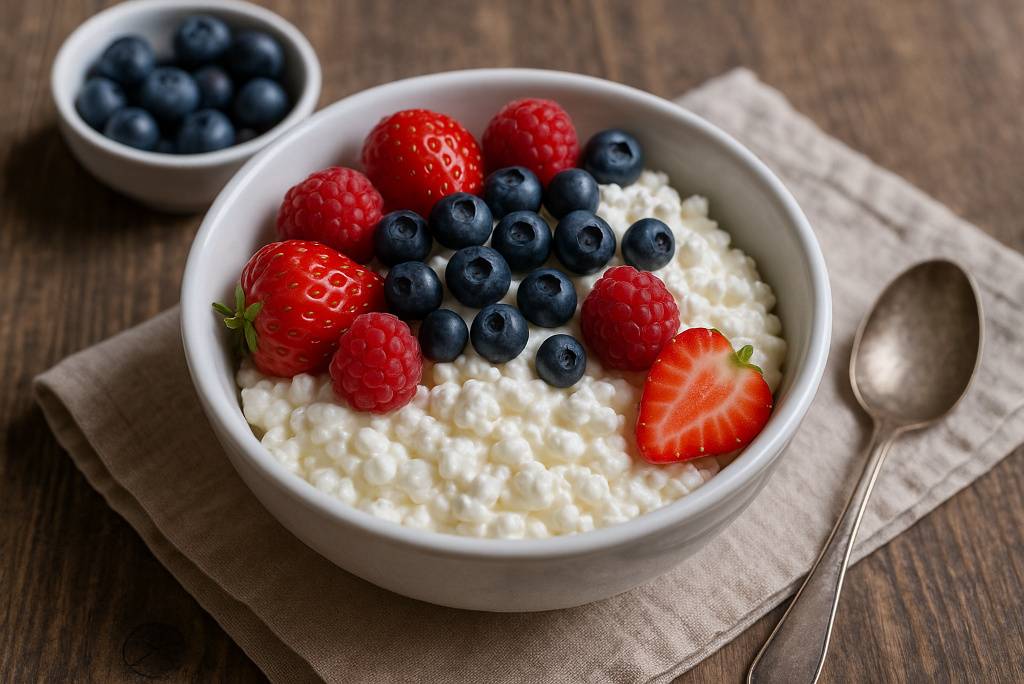
Cottage cheese boasts around 25 grams of protein per cup, one of the highest among vegetarian-friendly options. Combine it with fresh berries and a sprinkle of chia seeds for extra omega-3s and fibre. Compared to yoghurt, cottage cheese offers a thicker, creamier texture and even more protein per serving. This simple meal works beautifully as breakfast, lunch, or a post-workout snack. It’s quick to assemble and provides a satisfying balance of protein, calcium, and antioxidants, all beneficial for muscle recovery and overall health.
7. Tempeh and Vegetable Skewers
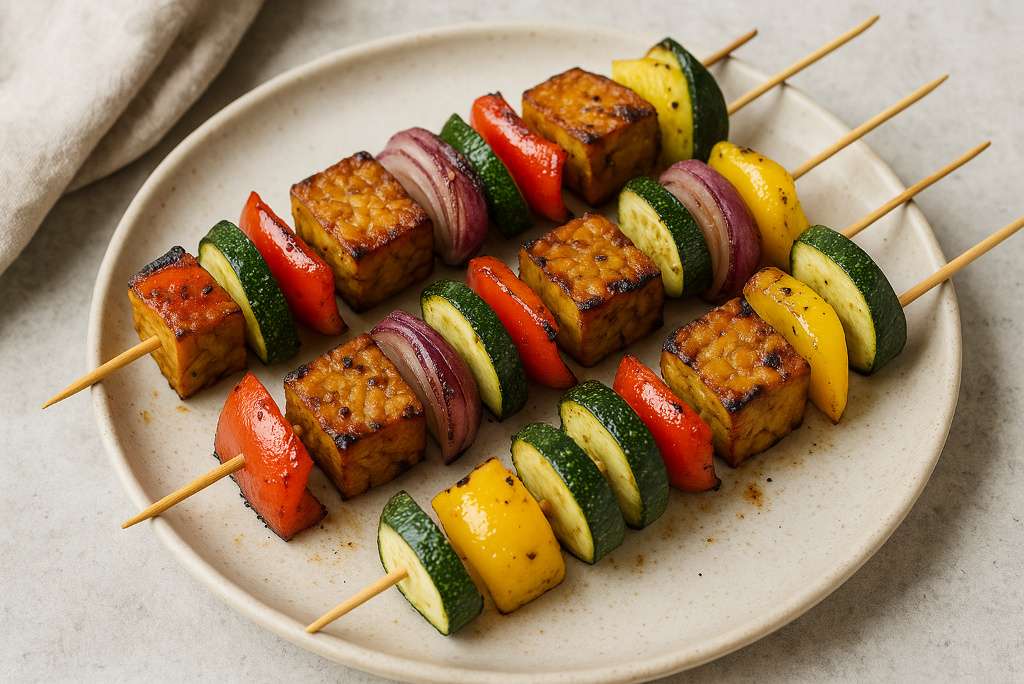
Tempeh is a fermented soy product containing about 21 grams of protein per cup. Cut tempeh into cubes, marinate in a mix of soy sauce, garlic, and olive oil, then thread onto skewers with peppers, mushrooms, and zucchini. Grill or bake until golden. Compared to tofu, tempeh has a firmer texture and nuttier flavour, offering more chewiness that’s satisfying in savoury dishes. These skewers make an excellent high-protein meal for outdoor grilling or easy oven dinners, keeping things varied for vegetarian muscle-building plans.
8. Edamame and Brown Rice Salad
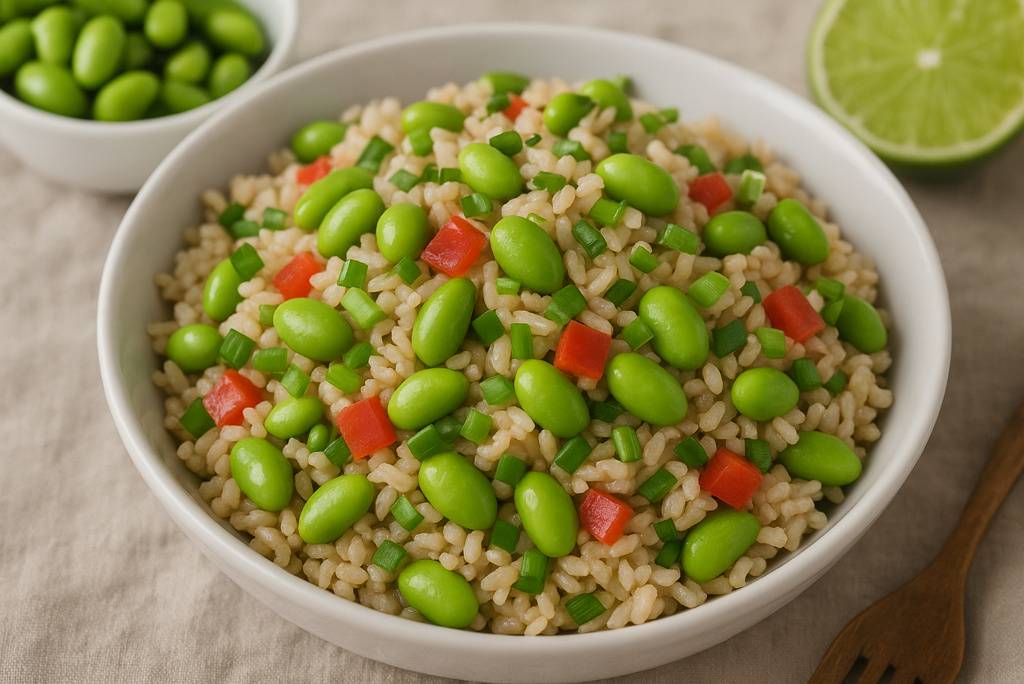
Edamame (young soybeans) offer about 17 grams of protein per cup. Toss shelled edamame with brown rice, diced bell peppers, cucumber, and a sesame-ginger dressing. Compared to leafy salads, this one is hearty and filling, making it suitable as a meal rather than just a side dish. Edamame also provides folate and vitamin K, both important for muscle function and recovery. It’s a vibrant, refreshing meal perfect for prepping ahead, ensuring you always have a protein-rich option ready.
9. Peanut Butter Banana Protein Smoothie
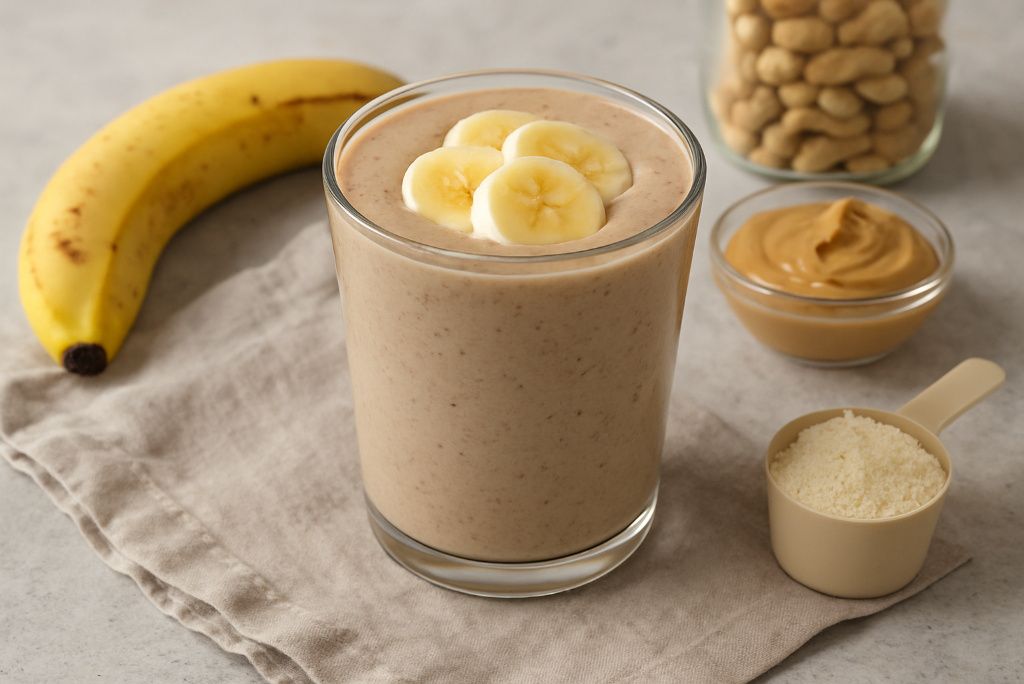
Peanut butter contributes about 8 grams of protein per two tablespoons, while adding protein powder boosts totals even higher. Blend peanut butter, banana, Greek yogurt, a scoop of vanilla protein powder, and almond milk for a smooth, creamy shake. Compared to fruit-only smoothies, this version offers significant protein and healthy fats, perfect for muscle repair after workouts. Bananas supply potassium to help prevent muscle cramps. It’s a tasty, quick meal that can double as breakfast or post-exercise fuel.
10. Paneer Tikka
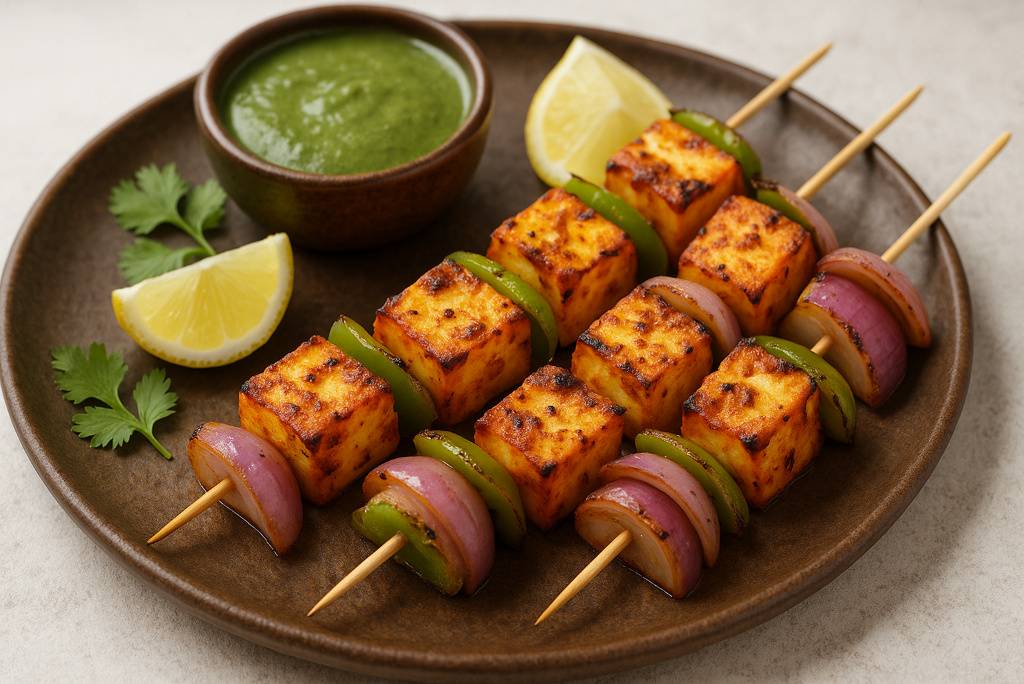
Paneer, an Indian cheese, delivers about 20 grams of protein per cup. Marinate cubes of paneer in yogurt, turmeric, cumin, and chili powder, then grill or bake until golden and slightly charred. Unlike meat-based tandoori dishes, paneer provides a vegetarian option rich in both protein and calcium. Serve with a fresh cucumber salad or wrap in whole wheat naan for a satisfying meal. Paneer tikka is high in flavor and protein, making it ideal for muscle-building diets without sacrificing taste.
11. White Bean and Kale Soup
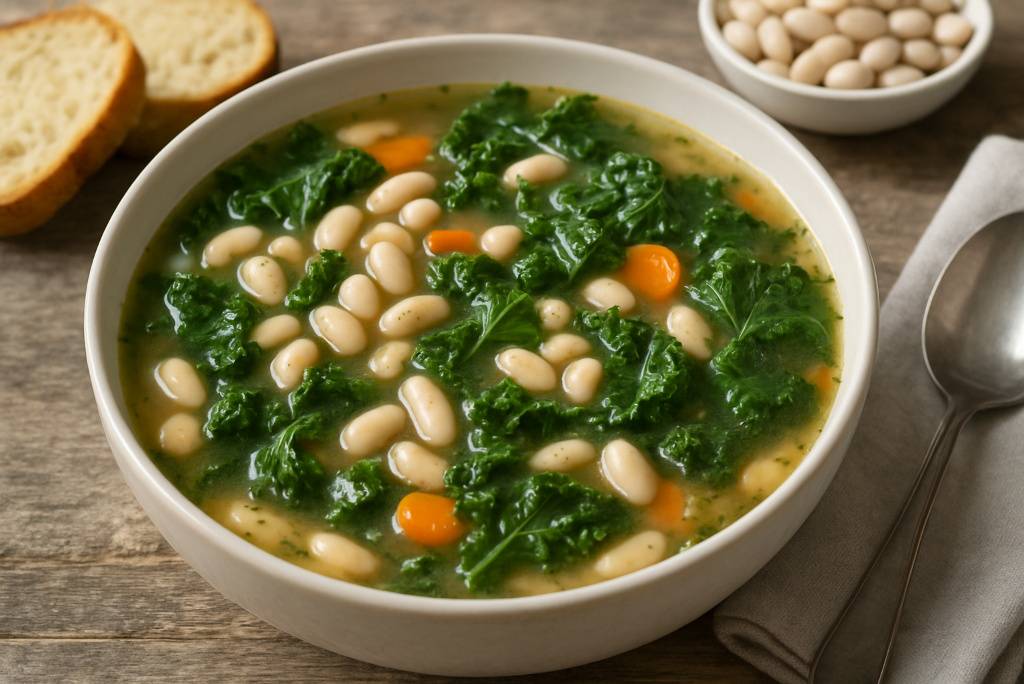
White beans provide roughly 17 grams of protein per cup and are an excellent vegetarian muscle-building. Simmer them with onion, garlic, chopped kale, and vegetable broth for a nutrient-packed soup. Compared to creamy soups, this broth-based option keeps calories lower while still feeling hearty and comforting. Kale brings vitamins A and K, crucial for overall health and muscle function. It’s easy to prepare large batches for meal prep, ensuring you have protein-rich meals ready all week.
12. Chia Seed Pudding
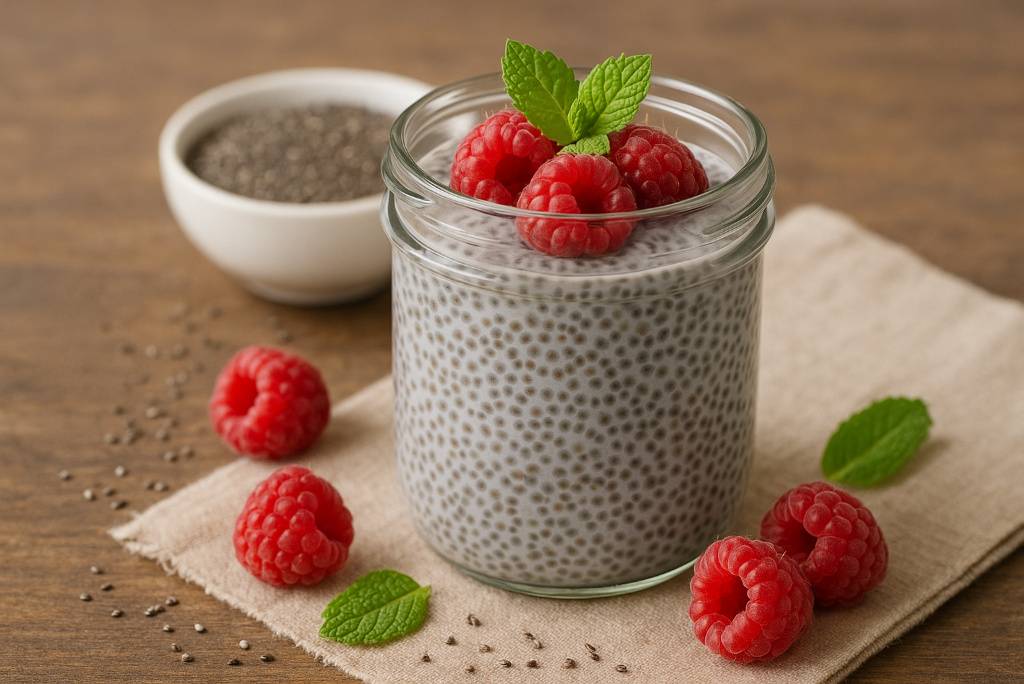
Chia seeds may seem small, but they pack 4 grams of protein per ounce and offer omega-3s and fiber. Combine chia seeds with almond milk and let sit overnight to create a thick, creamy pudding. Top with nuts, berries, or shredded coconut for texture and extra protein. Compared to traditional puddings high in sugar and dairy, chia pudding is lower in carbs and rich in nutrients. It’s perfect as a high-protein dessert or a refreshing breakfast that supports muscle recovery.
13. Veggie Omelette with Cheese
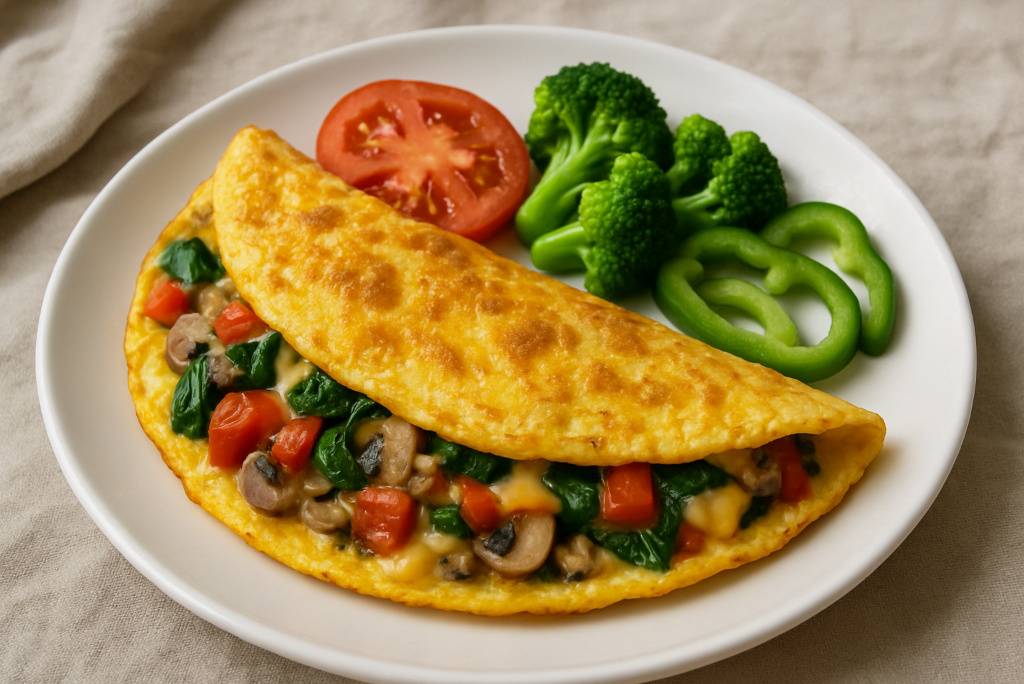
Eggs remain one of the most efficient protein sources, offering around 6 grams per egg. Whip up an omelette with diced bell peppers, mushrooms, spinach, and a sprinkle of shredded cheese for extra protein. Unlike plain scrambled eggs, an omelette provides more texture, flavour, and nutritional variety. Cheese contributes calcium and additional protein, making this a great meal for building muscle. It’s a fast, versatile dish suitable at any time of day and easily customisable with different veggies.
14. Split Pea Soup
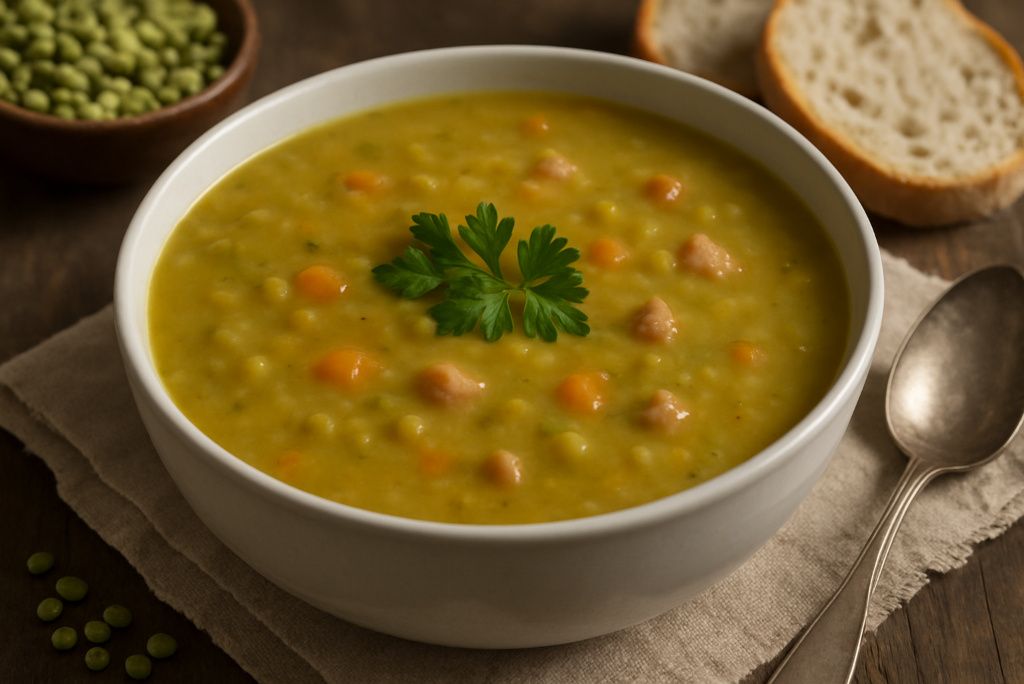
Split peas contain about 16 grams of protein per cooked cup. Cook them slowly with onions, garlic, carrots, and celery for a thick, comforting soup. Compared to cream-based soups, split pea soup is lower in fat yet highly satisfying due to its natural creaminess and fibre content. It’s a budget-friendly way to increase protein intake and works well for meal prep. The fibre also helps keep you full, supporting weight management alongside muscle-building goals.
15. Protein-Packed Veggie Chili
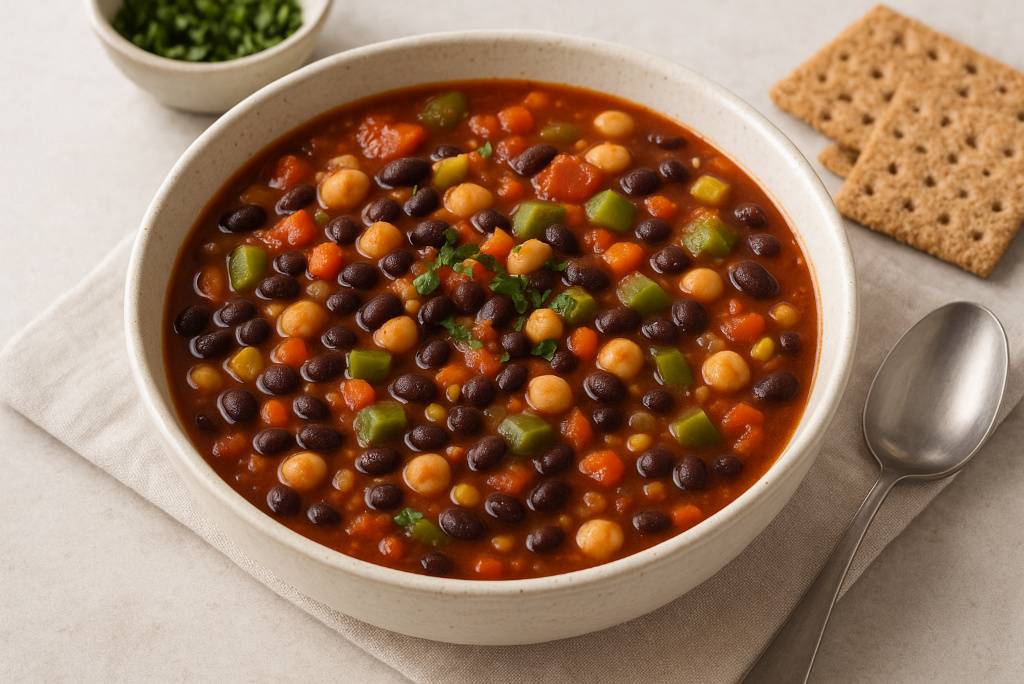
A vegetarian chilli featuring kidney beans, black beans, and pinto beans delivers roughly 15–18 grams of protein per serving. Simmer beans with tomatoes, bell peppers, onions, and spices like cumin, chilli powder, and smoked paprika. Unlike meat chilli, this version is lower in saturated fat while remaining just as hearty and flavourful. Serve with a dollop of Greek yoghurt instead of sour cream for extra protein. Veggie chilli freezes beautifully, making it a perfect meal-prep option for busy weeks when you need a protein boost
Disclaimer: This content is intended for informational use only and should not be considered medical advice. Please consult a healthcare professional before making major changes to your diet.

